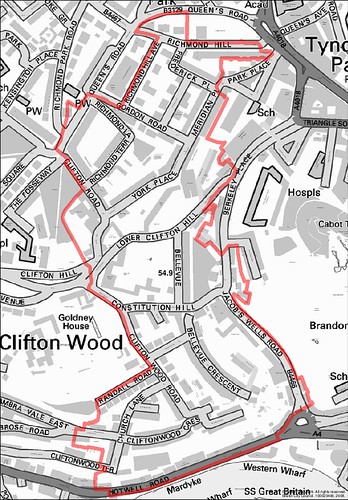
Commission chairman Lib-Dem Alex Woodman found himself fronting for the council when the proposals are in reality being pushed through by the Labour Cabinet, a finer point of democratic accountability evidently lost on many of the baying mob. Alex did his best under the very difficult circumstances, but his youth and inexperience told against him. Whenever he tried to assert his authority as Chair he was teased mercilessly by the crowd - “ooooooooooh”. The man who will have to confront the mob at Thursday's Cabinet meeting, Mark Bradshaw, sat at the back, grinning Cheshire cat like.
A few pro-RPS residents braved the sea of NO placards and spoke forcefully in support of the scheme but the general mood was antagonistic. A few spoke coherently against the Scheme, notably councillor Peter Abrahams, whose eloquence had Churchillian overtones. His political savvy and rhetorical skills showed through as he positioned himself to be the motorists champion.

The essence of the debate is interesting. On the one hand there are some areas on the fringe of the existing central Bristol CPZ, notably Kingsdown (above) and south-east Clifton (below) where a clear majority of residents (as disclosed here ten days ago) want an RPS, even if they have to pay the cost of running it themselves, such is their desperation. So why shouldn't they have what they manifestly want? Is that not the democratic way?
On the other hand it is argued that if those areas are allowed to have RPS then the parking problem will be displaced to the adjacent areas, who will in turn require an RPS to resolve it, displacing the problem again until ultimately the whole of the inner city has to be covered. And the overall view of the inner city, as evidenced by the consultation, is that the overwhelming majority don't want RPS. Those who support this argument are saying in effect that areas like Kingsdown and Clifton must continue to suffer so that the rest do not inherit the parking problem.
It's a bit like saying that your neighbours shouldn't be allowed to have cars so that you can continue to have one yourself without suffering the consequences of your actions (and that is often said, isn't it, when the neighbours are students). In other words sheer, unadulterated hypocrisy. Fortunately the Lib-Dems are supporting the rights of those areas that want RPS so it should get through the political process intact. Nevertheless it will be a bumpy ride over the next weeks as the RPS proposals go to Cabinet on Thursday and then Full Council.





4 comments:
No mention as usual of the people right in the middle of the city who suffer most from the incursion of cars and who weren't even consulted about RPZ and are now being denied it, even though they indicated they would like it.
There are proposals for extensions to the central Bristol CPZ, where parking places are all pay-and-display but residents may buy a single permit (for £50?) to park in them.
Some of the proposed extensions were on the west side of Brandon Hill, abutting the proposed Clifton RPZ, namely John Carr's Terrace and Upper Berkeley Place. I don't know what happens if they opt out of joining the CPZ. They could be inundated with free-parking hunters if they stay uncontrolled.
At present no-one living in a CPZ has a resident's bay or residents' bays reserved for them. So on Sundays and most evenings there is not much chance of their being able to use their residents' permits to park in their streets, even though they have paid for them. Furthermore, not all residents are granted a permit, because the short stay public car parking - and all of its concomitant pollution - takes prioriy over residents as far as the council is concerned.
So wouldn't it be logical to allow residential streets caught up in the existing CPZ the option of transferring to become part of one of the proposed RPS zones? If so we can be confident that BCC will not entertain it.
Post a Comment